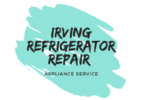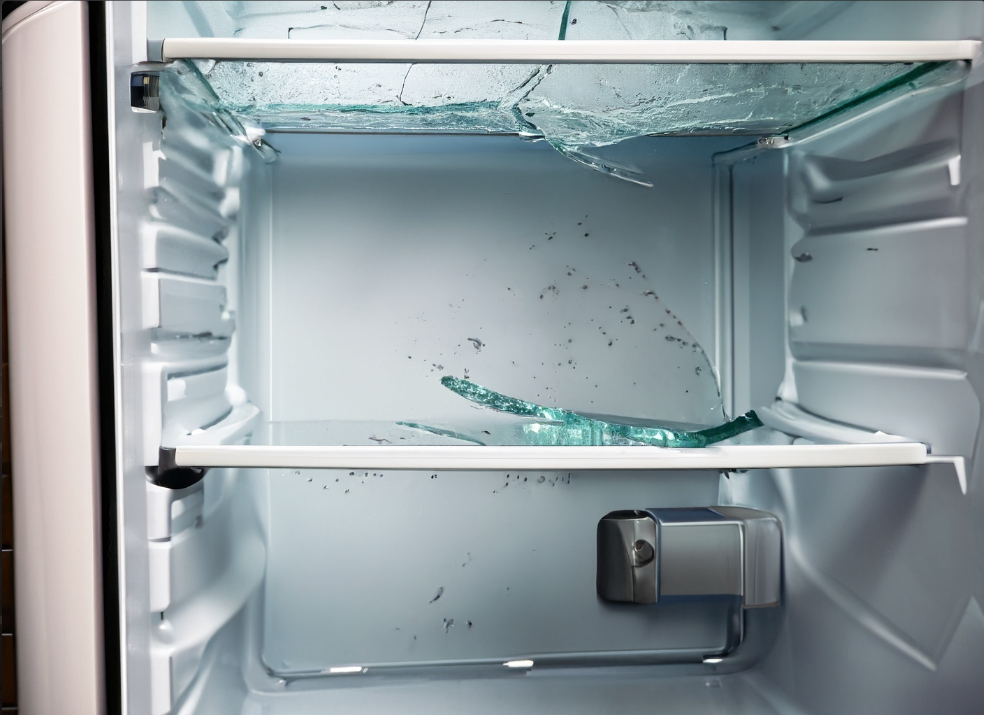Don’t let the summer heat take a toll on your fridge and freezer this year! With a few simple steps, you can keep your refrigerator and freezer running efficiently, saving energy and keeping your kitchen cool.
So, if you want to beat the summer heat and still enjoy a frosty beverage, read our top tips for keeping your fridge and freezer running like a champ!
Temperature Settings
It’s essential to check the refrigerator and freezer temperature with a thermometer and set it to between 35 and 38 degrees and 0 and 5 degrees, respectively. Placing the refrigerator 10 degrees colder than necessary can use up to 25 percent more energy. The freezer should be manually defrosted once the ice becomes 1/4 inch thick to maintain efficiency.
Regarding regulating room temperature, refrigerators use 2.5 percent more energy for each degree than the average room temperature. So, if the room is 80 degrees, the refrigerator uses 22 to 25 percent more power. If the room is 90 degrees, the refrigerator uses 45 to 50 percent more energy. Refrigerators near ovens or dishwashers may also use more energy.
Your refrigerator may have an anti-sweat feature that heats the area around the door seal to prevent condensation. This uses 5 to 10 percent more energy, so it should be turned off if not needed. Air circulation is also essential, so keep a few inches of space between the refrigerator and the wall.
Worn or loose seals may cause energy loss, so check tightness with a dollar bill. Close the bill between the door seal and the door at different locations along the edge; if it moves easily, consider replacing the seals.
Cleaning and Maintenance
You should clean and maintain your refrigerator and freezer at least once a year. This will ensure your refrigerator and freezer run efficiently and stay in good condition. Here are some things you should do:
- Clean the condenser coils with a brush or vacuum to improve efficiency by up to 30 percent.
- Replace the air filter regularly to keep the air circulating properly.
- Check and adjust the temperature settings. The refrigerator should be set between 35 and 38 degrees, and the freezer should be set between 0 and 5 degrees.
- Setting the temperatures 10 degrees colder than necessary can use up to 25 percent more energy.
Regulating Room Temperature
You can save energy and reduce wear and tear on your refrigerator by regulating the room temperature. It uses 2.5 percent more energy every 1 degree above the average room temperature.
The refrigerator door should be kept shut as much as possible, and the temperature should be comfortable. If the ambient temperature is 80 degrees, the refrigerator can use 22 to 25 percent more energy. If it’s 90 degrees, it can use 45 to 50 percent more power.
If you have an oven or dishwasher near the refrigerator, this can also cause the refrigerator to use more energy. The thermostat may not work correctly if the room temperature is below 40 degrees. Therefore, keeping the temperature between 40 and 85 degrees is essential.
Ensure a few inches of space between the refrigerator and the wall for good air circulation. Suppose the refrigerator door doesn’t close properly due to worn or loose seals. In that case, this will also cause the refrigerator to use more energy. To check the seal, you can place a dollar bill between the door seal and the door. If it moves too easily, you should consider replacing the seal.
Anti-Sweat Feature
You can save energy by turning off the anti-sweat feature when not in use. The anti-sweat part keeps the refrigerator from accumulating condensation and regulates the temperature inside the unit. By turning this feature off, you can save energy.
- Heat is generated around the door seal, which reduces the refrigerator’s efficiency.
- Refrigerators must work harder in higher ambient air temperatures, so turning off the anti-sweat feature can help reduce energy use in warmer climates.
- The anti-sweat feature can consume 5 to 10 percent more energy, so turning it off when not in use can make a difference.
Following these simple steps can save energy and help keep your refrigerator running efficiently.
Smart Habits
Following a few simple habits can keep your refrigerator running efficiently and avoid unnecessary appliance repair costs.
Use your refrigerator only when necessary, and try to keep the door open for the shortest time possible.
Ensure all food is appropriately covered, labeled, and cooled before being placed in the refrigerator. This will prevent any spoilage and will help maintain optimal temperature.
Keep the freezer full and use the right-sized containers to store food. This ensures that cold air circulates appropriately and doesn’t escape the appliance.
Avoid overcrowding the refrigerator and keep a few inches of space between it and the wall to ensure good air circulation. This will help maintain efficiency and prolong the life of your refrigerator.

